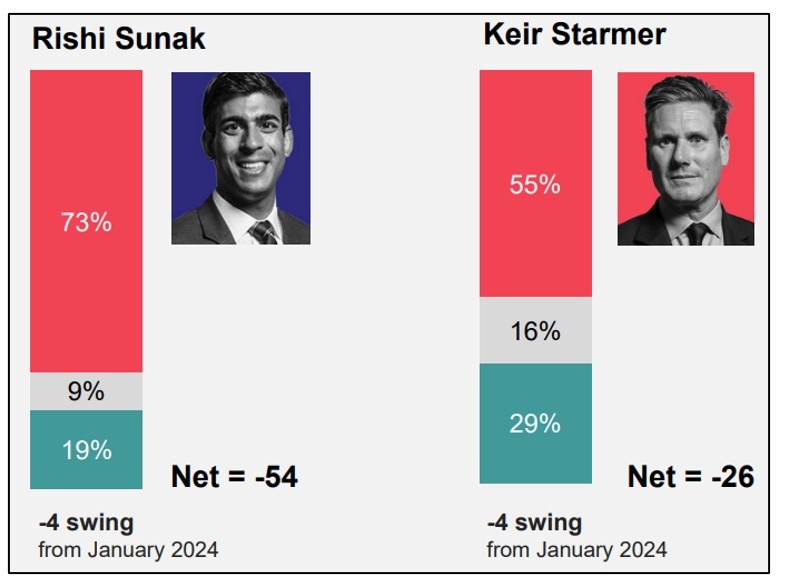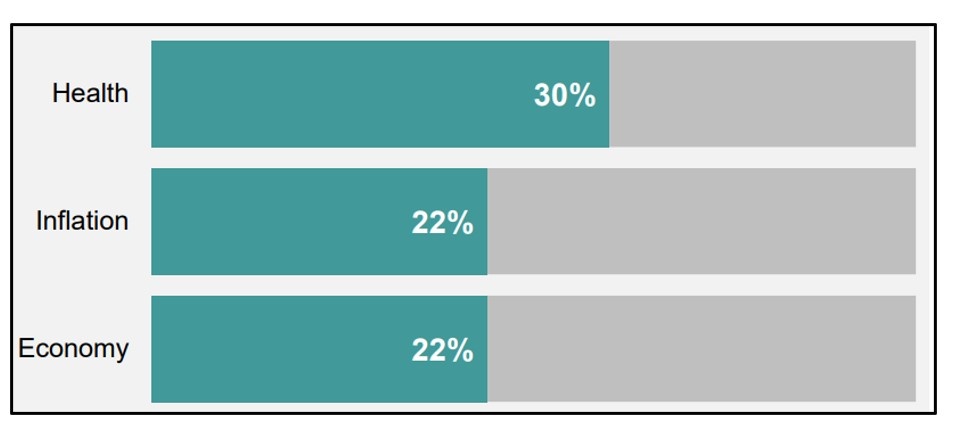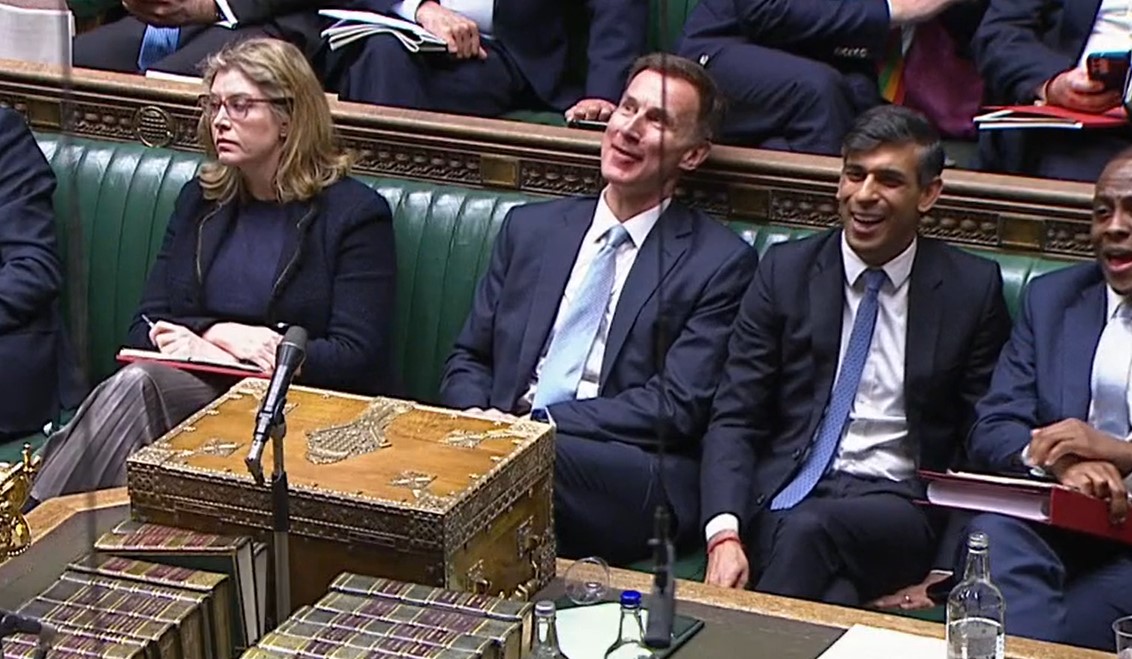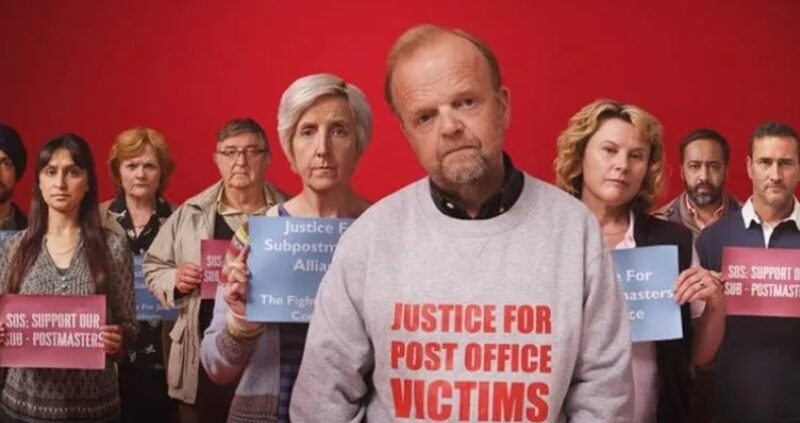Jeremy Hunt’s budget on Wednesday, as is usual for this government, was all smoke and mirrors. Pretending to help working-class people while doing the opposite, the great National Insurance ‘give-away’ was a blatant attempt to shore up the Tories’ chances, when faced with catastrophic opinion polls.
The reduction in NI payments for workers is a drop in the ocean in comparison to the higher prices they are paying for rents, energy, transportation and food. Housing alone, whether in the rented or mortgaged sector, is eating up more in a month for most households than is offered by this NI ‘benefit’.
Very many low paid workers, those in part-time or zero-hours work, will not benefit at all from the NI reduction, their wages being so low to start with. Nor did Hunt mention the continued freeze on income tax thresholds, which means that if wages creep slowly upwards (thanks mainly to trade union action), income tax will be paid increasingly by the most poorly paid.
The additional ‘taper’ on child benefit, flaunted as another major giveaway, will only affect workers earning over £50,000 a year, which gives a better clue to the profile of those voters to whom the budget is directed.
Last reduction in NI, in November, had no impact on polls
Although Hunt’s budget was a political gesture, a last chance to salvage something before the coming elections, it is unlikely to make much impact on the Tories’ fortunes. They have long since lost the support of large swathes of the population, including significant sections of the their former supporters. Opinion polls have consistently shown that most voters would prefer improved services to tax cuts. In fact, there was a similar reduction in NI contributions in the November ‘mini-budget’ but it did nothing to stop the nose-dive in their popularity.

Sunak and Co have particularly lost support among younger voters. The budget statement came on the day that it was announced that February showed a record high monthly temperature – the seventh consecutive such record. Younger voters, who are particularly concerned about climate change – and why wouldn’t they be?, since it is their future that is being trashed – will have seen that climate change did not feature in the budget at all.
The latest IPSOS-Mori poll shows the Tories at the lowest rating ever in the near fifty-year life of that polling organisation – only 20 per cent! Despite a significant indication in those polls that voters do not trust Keir Starmer and are largely unaware of what he stands for, there is a Labour lead of 27%, with Labour on 47%, more than twice the Tories, an astonishing figure.
What labour movement activists need to be discussing is not this budget non-event, but the likely state of British capitalism when Labour comes into office, as it almost certainly will in the next nine months. Hunt has run all of his policies past the Office for Budget Responsibility (OBR) which has nodded them through only because the Tories have baked future national and local government cuts and future tax rises into their calculations.
All public services are creaking to the point of break-down
As an article points out in the Financial Times (by its leading economic columnist, Martin Wolf, March 6), “the Chancellor has pencilled in another long period of austerity”. What does that mean for those services, like the NHS, upon which workers depend? “Behind the upbeat rhetoric”, the Financial Times says, “was a sombre backdrop of continued pressure on Britain’s creaking public services”. It is more than sombre, it is disastrous.

Hunt’s budget sticks with previously drawn up plans for a one per cent real-terms increase in day-to-day departmental spending from 2025-26. “On a per-person basis”, the Financial Times points out, government spending “will be flat in real terms for the rest of the decade…”.
But ‘real’ inflation in department spending terms always exceeds ‘official’ inflation, so given that some government spending, like Defence, will have real-term increases pencilled in, other departments and services will face real-term cuts.
The day before the budget, Birmingham City council voted for £100m of cuts, forced by massive cuts in central government funding. The Birmingham cuts will undermine important services upon which working class families rely. Only the bare minimum of statutory services will be provided, and they will come with a huge increase in Council Tax, well over the rate of inflation.
The ultra-harsh austerity imposed by that city council will be repeated across the country. There is virtually zero possiblity of social housing being built, of NHS waiting lists getting shorter or school buildings being improved. And that is before looking at the wages of the underpaid and overworked staff in those sectors.
Workers are “paying more and getting less” for the foreseeable future
What Keir Starmer said in the House of Commons, that the Tories have no ‘plan’ to make anything ‘better’, is perfectly true. Taxation is at record levels, higher than at any time since the 1940s; the British economy will continue to stand still, both in terms of productivity and overall output, and investment will stagnate. Above all, working families are going to be “paying more and getting less” for the foreseeable future.
The custodians of the British economy – those who own and control the vast wealth and resources upon which we all depend – are intent only on making the most they can, as quick as they can – short-term profits from squeezing the living standards of the big majority. There is a flow of income and wealth from the bottom to the top. In office again after this year, the Tories would continue on the same path.
What will Starmer and Reeves do that is different?
The question that needs to be asked, therefore, is what will Keir Starmer and Rachel Reeves do that is different? What is their ‘plan’? What the Tories have already written into long-term government spending will be little short of disastrous for public services. Yet those millions who vote Labour, despite their suspicions and doubts regarding the leadership, (amply demonstrated by IPSOS-Mori) will expect to see meaningful improvements in public services.

If Rachel Reeves, as Labour Chancellor, abides by the strictures of the OBR – which ought to be called ‘The Office for Business Respectability’ and should be abolished – then she will be tied hand and foot to the spending and taxation plans already factored in by the Tories. That will mean raising fuel duty and other taxes, freezing government spending and other austerity measures.
British capitalism and all of its elements – the media, the civil service tops, Big Business, Finance, the Bank of England, the OBR – all of these will inevitably push a Labour government along the path of ‘Labour’ austerity. There have already been ominous sounds from the Labour front benches – the Tories having ‘stolen’ their (largely symbolic) policy on abolishing non-dom tax status – about “savings”, and workers know what that means.
Part of the discussion that needs to be had now is how will the labour movement react to Labour belt-tightening? There is an alternative to simply bowing the knee to Big Business and Big Finance. It would involve using the power of the labour movement to challenge the ownership and control of the main levers of the economy by a narrow layer of super-rich people at the top.
The debate we need now is around the direction of a Labour government
It would mean challenging the ownership of the media by billionaire tax-dodgers. It would mean taking as a starting point the very reasonable needs of working class people: for decent, affordable homes, for reasonable energy, transport and food costs and for an Education system and NHS that works. The urgent needs of working families today cannot be relegated to some vague ‘aspiration’ in an indefinite future.
It is not as if the Britain is not a wealthy country. It is still the fifth or sixth most wealthy country in the world. The issue is who owns that wealth, and what are they doing with it.
If the capitalist system cannot, or will not, afford the basic necessities of life for its population, then Labour must fight to get rid of the system and replace it with one that will. Socialist ideas are not just a historical curiosity. They revolve around the idea that the enormous economic wealth of the country should be democratically owned and managed in the interests of the ‘many’ and not the ‘few’ and that is the programme on which we must fight.
That discussion in the labour movement is one that needs to start now, before Labour is elected, and before the Tories are sent packing, as they undoubtedly will be. Hunt is like a man tip-toeing across stepping stones, gingerly trying to avoid the waters below. What he hasn’t seen is the raging torrent that is bearing down on him.
[Top picture from public House of Commons telecast]



